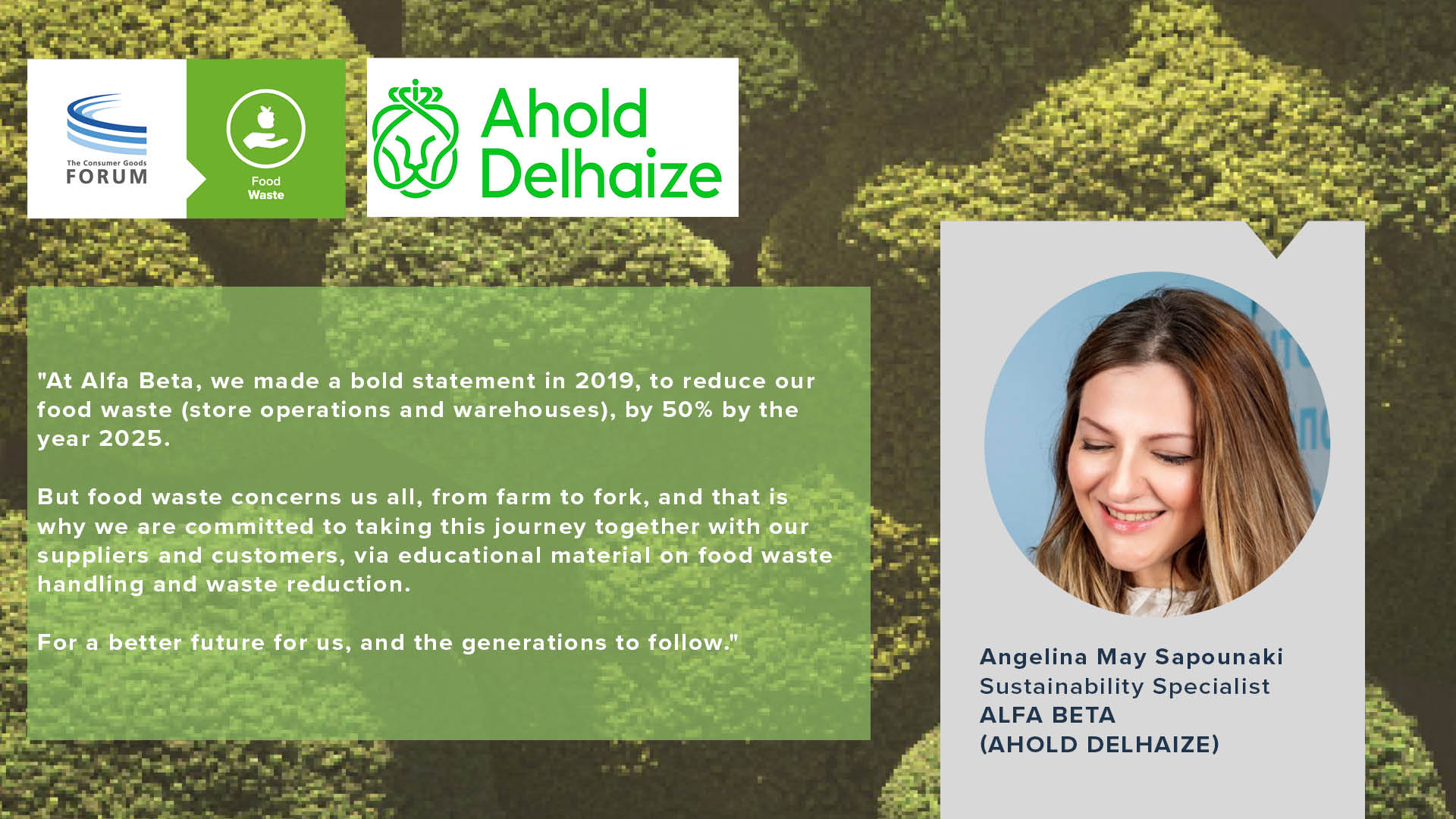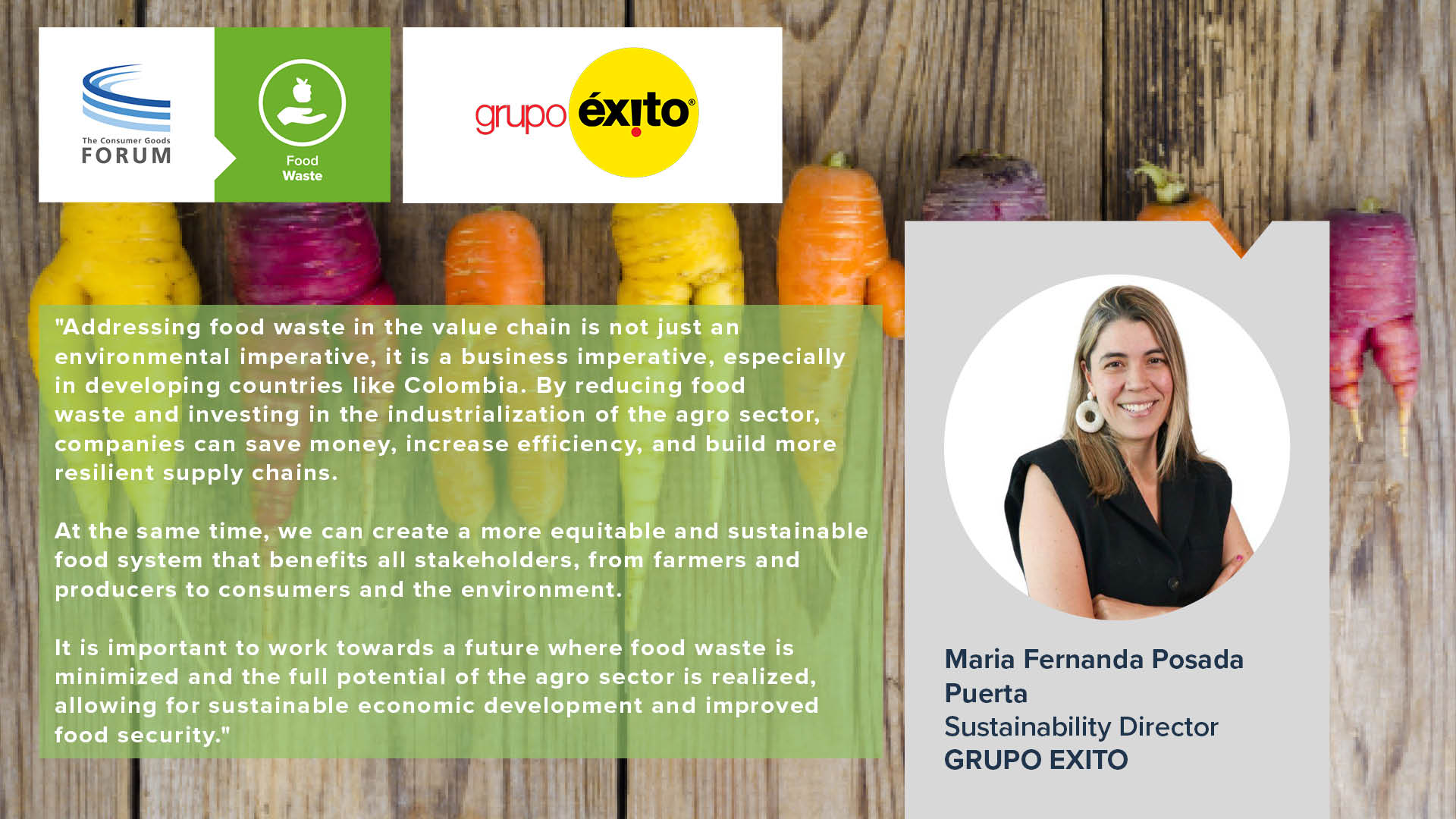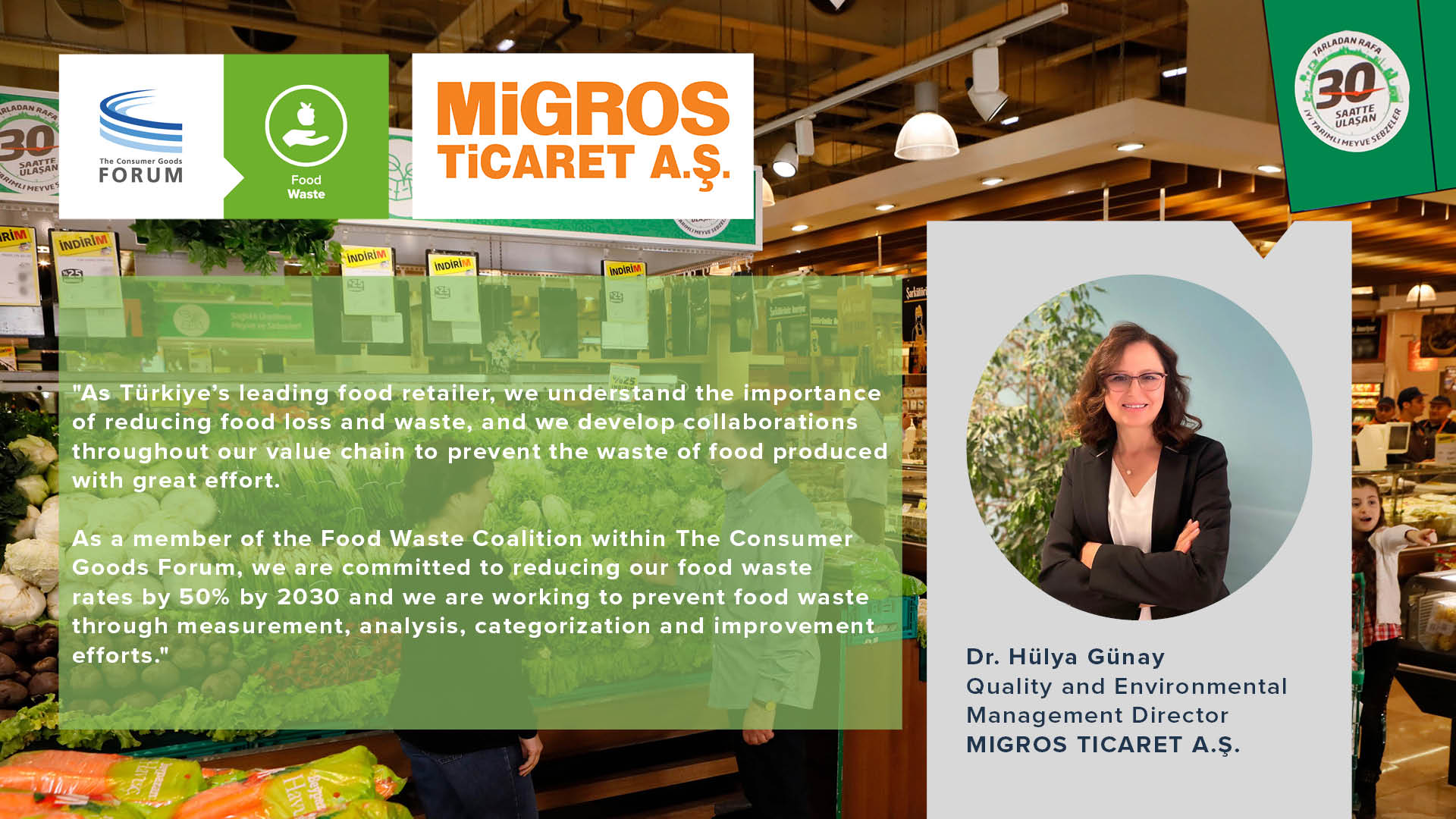In line with the United Nations Responsible Production and Consumption Goal 12, the target is to reduce food waste and losses by 50% by 2030. The 10x20x30 initiative, which was created with this goal in mind, means that 10 retailers around the world commit to and support their 20 suppliers to reduce food waste by 50% by 2030. Launched in 2020 and monitored by the World Resources Institute (WRI), we were the first retailer from Türkiye to join this special initiative with 26 volunteer suppliers.
In the 10x20x30 project, which is entirely voluntary, our supplier companies can communicate with experts in this field at WRI, strengthen their own practices by seeing good practice examples, and communicate their participation in this initiative through press releases.
We organize trainings with WRI at least 4 times a year to reduce food waste and loss and provide training on how to reduce food waste within the framework of the ‘Food Loss and Waste Measurement and Reporting Standard (FLW Protocol)’. We provide informationand guidance on preparing food waste inventories and identifying mitigation strategies by measuring food waste, and act as a bridge in communication with WRI.
In addition to our suppliers, we also share our good practice examples with the participants through various events to raise awareness on food waste management in the Turkish food and retail sector, dissemination of the FLW Protocol and the 10x20x30 initiative.
With the contributions of leading companies in the retail and FMCG sectors, we spearheaded a study on consumer perceptions and behaviors leading to food loss, organized by the Food Safety
Association, and conducted by Nielsen. We participated in the Save Your Food campaign launched by the Food and Agriculture Organization of the United Nations (FAO) and the Ministry of Agriculture and Forestry to raise public awareness on food waste. We also partner with ministries and leading experts to develop guidelines to reduce food loss and waste. For example, under the leadership of the Ministry of Agriculture and Forestry and with the support of FAO, we prepared the ‘Guide to Combating Food Waste at Food Points of Sale’ and put it at the service of the sector. Thus, by leading the Turkish Retail sector, we have made a lasting contribution to combat food loss and
waste.
To prevent post-harvest losses in the field, we have started to implement a model where the entire crop is used; we sell the products that meet our sales criteria, and we ensure that other products such as jams, sauces and fruit juice which retain nutritional value are used in other production areas.
We act with the awareness that local production is the foundation of both regional and national development. By developing a business model that prioritizes the sale of locally sourced products in the same region, we ensure that products are consumed in the geography where they are produced and contributed to the local economy. We prevent food losses based on logistics and reduce carbon emissions.


